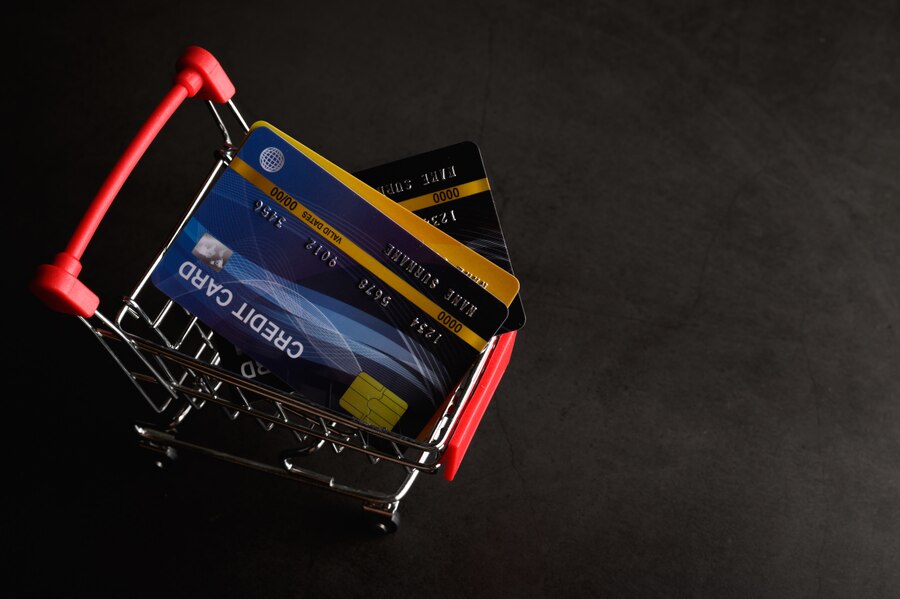Credit cards have become ubiquitous in modern-day transactions, offering convenience and flexibility in managing expenses. However, the ease of swiping a card often masks the potential pitfalls of revolving credit and accumulating debt. One common practice that can lead to long-term financial strain is paying only the minimum amount due on your credit card statement. In this blog post, we’ll explore what happens when you choose to pay only the minimum, shedding light on the implications for your financial health and long-term debt management.
The Minimum Payment Dilemma
When you receive your credit card statement, it typically includes a minimum payment amount that you’re required to make by the due date to avoid late fees and penalties. While paying the minimum may seem like a convenient option, especially if you’re facing financial constraints, it’s essential to understand the consequences of this approach.
Escalating Interest Charges
One of the most significant drawbacks of paying only the minimum amount due is the accrual of high-interest charges on the remaining balance. Credit card issuers apply interest to any unpaid balance, carrying it over to the next billing cycle. Since credit card interest rates are often considerably higher than other forms of debt, such as mortgages or auto loans, allowing balances to accumulate can lead to substantial interest expenses over time.
Prolonged Debt Repayment
By paying only the minimum amount due, you’re essentially prolonging the repayment period for your credit card debt. While it may provide temporary relief by meeting the immediate payment obligation, it sets the stage for a cycle of revolving debt where you’re continually making payments without making significant progress in reducing the principal balance. This can result in a prolonged and costly debt repayment journey, hampering your financial goals and limiting your ability to build wealth.
Negative Impact on Credit Score
Your credit utilization ratio, which measures the amount of available credit you’re using relative to your total credit limit, plays a significant role in determining your credit score. By carrying a high balance on your credit card and paying only the minimum amount due, you’re effectively increasing your credit utilization ratio, which can have a negative impact on your credit score. A lower credit score can make it harder to qualify for loans, mortgages, or favorable interest rates in the future, further exacerbating your financial challenges.
Risk of Default and Penalty Fees
Continuously paying only the minimum amount due increases the risk of defaulting on your credit card debt, especially if you encounter unexpected expenses or income disruptions. Defaulting can trigger a cascade of adverse consequences, including penalty fees, increased interest rates, and damage to your creditworthiness. Additionally, creditors may resort to aggressive debt collection tactics, including lawsuits or asset seizure, to recover unpaid balances, further exacerbating your financial distress.
Breaking the Cycle
While paying only the minimum amount due may provide temporary relief, it’s essential to break free from the cycle of revolving credit and take proactive steps towards debt repayment and financial stability. Here are some strategies to consider:
1. Increase Your Payments: Whenever possible, strive to pay more than the minimum amount due to accelerate debt repayment and reduce interest charges over time.
2. Create a Budget: Develop a comprehensive budget that outlines your income, expenses, and financial goals. Identify areas where you can cut back on discretionary spending to free up funds for debt repayment.
3. Prioritize High-Interest Debt: If you have multiple credit cards or loans, prioritize paying off high-interest debt first to minimize interest expenses and expedite your journey towards debt freedom.
4. Explore Balance Transfer or Debt Consolidation: Consider consolidating high-interest credit card debt through a balance transfer to a card with a lower interest rate or exploring debt consolidation options to streamline your payments and reduce overall interest costs.
5. Seek Financial Guidance: If you’re struggling to manage your debt, don’t hesitate to seek guidance from a financial advisor or credit counseling service. They can provide personalized advice and support to help you regain control of your finances.
Conclusion
Paying only the minimum amount due on your credit card may offer short-term relief, but it comes with long-term consequences that can impede your financial well-being and limit your future opportunities. By understanding the implications of minimum payments and taking proactive steps to address your debt, you can break free from the cycle of revolving credit and embark on a path towards financial freedom and security. Remember that every payment, no matter how small, brings you one step closer to achieving your goal of debt repayment and financial stability.



